Professor Cynthia Estlund Gave a Lecture on Automation and a Future of Less Work: Welcome or Worrisome?
time:2021-01-31On the evening of December 3, 2020, hosted by the Social Law Teaching and Research Center of Law School of Renmin University of China and Law and Technology Institute of Renmin University of China, “Automation and a Future of Less Work: Welcome or Worrisome? -- Forums on norms and development fronts of 'new forms of employment'" was successfully held through online conference. This was the sixth lecture in the autumn 2020 series to celebrate the 70th anniversary of the founding of the Law School of Renmin University of China.
Prof. Cynthia Estlund, from New York University Law School, was invited to deliver the keynote speech. Lin Jia, professor of Renmin University of China Law School, Director of the Institute of Labor Law and Social Security Law, and Director of the Center for Social Law Teaching and Research, attended the conference as a guest speaker. Zhang Jiyu, Associate professor of Law school of Renmin University of China, Shen Jianfeng, Central University of Finance and Economics Law School, Li Lingyun, Associate professor of School of Economics and Law of East China University of Political Science and Law, Wang Tianyu, Associate Researcher of Institute of Law of Chinese Academy of Social Sciences, Ban Xiaohui, Associate Professor of Wuhan University Law School, Tang Hongmiao, Associate Professor of Liaoning University Law School, Ding Wenwen, Lecturer of China University of Political Science and Law School of Civil Business and Economics, Chen Jingyuan, Postdoctoral Fellow of Tsinghua University Law School, Yu Hui, Lecturer of China University of Political Science and Law School of Civil Business and Economics, Pan Yijia, Postdoctoral Fellow of law school of Renmin University of China attended the lecture. Ding Xiaodong, Associate Professor of Renmin University of China Law School, served as the moderator.
This seminar attracted more than 150 teachers, students and colleagues from colleges and universities all over the country to attend.
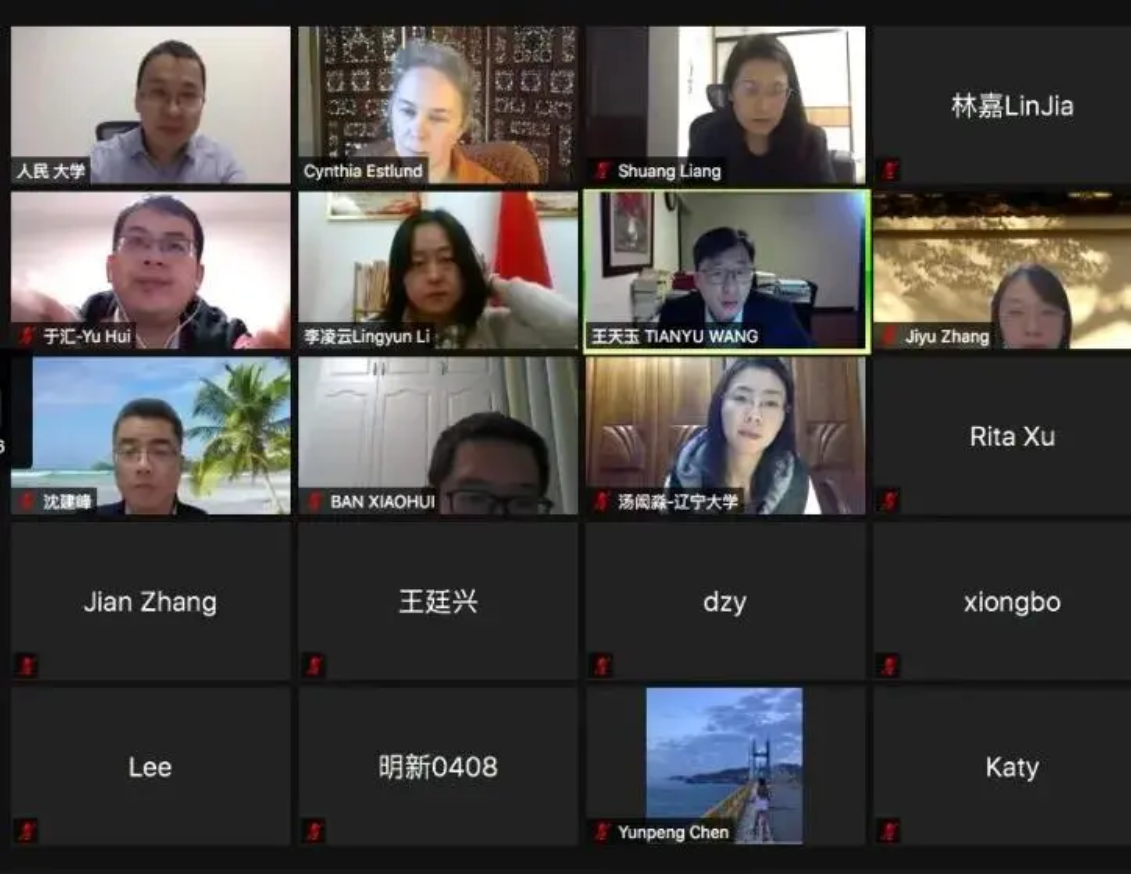
Professor Lin Jia, on behalf of the Law School of Renmin University of China and the Social Law Teaching and Research Center, first of all, expressed her sincere welcome and thanks to Professor Estlund for attending the lecture. She also extended her sincere welcome to the distinguished guests and teachers and students from various universities in China attending tonight's lecture. Professor Lin noted that Chinese scholars are currently paying more attention to the gig economy and the legal status of platform practitioners, but less to automation in the workplace. Therefore, she believed that Professor Estlund's lecture tonight will be a great inspiration and encouragement to the present teachers and students. In conclusion, Professor Lin Jia wished the lecture a success! I hope the epidemic will end as soon as possible, and Professor Estlund can come to the Law School of Renmin University to communicate with teachers and students in person.
First of all, Professor Cynthia Estlund enumerated a series of practical examples of automation replacing human labor, including Uber began to promote the use of autonomous driving technology to replace drivers, Foxconn will replace all workers with robots, the possibility of widespread use of robots in the nursing industry, a series of jobs of lawyers may be replaced by automation, etc.
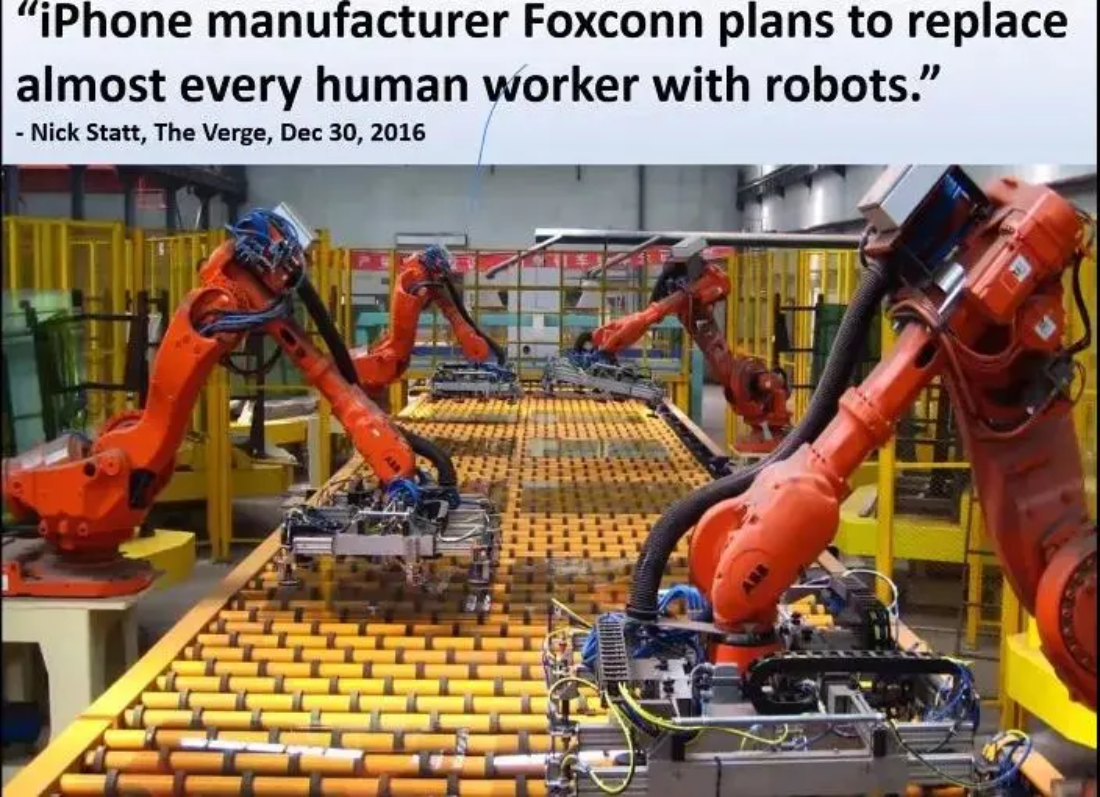
Secondly, Professor Cynthia Estlund introduced different viewpoints of different scholars on "whether machines will replace human labor" and some research results, as well as two issues that need special attention:
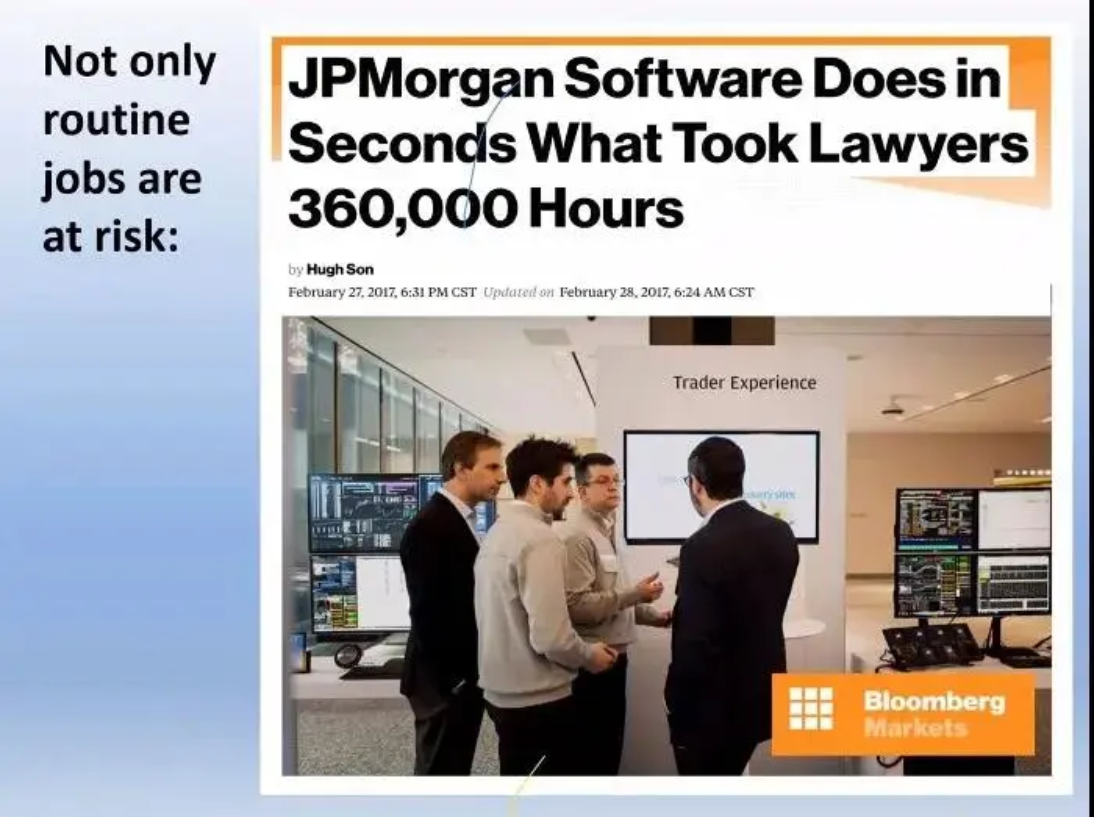
On the one hand, many economists see the latest wave of automation-induced anxiety as the misguided panic-mongering of modern Luddites. The history of automation's impact on the Labour market has been one of "creative destruction".
On the other hand, many scholars think this time is different. Some predict that unemployment will follow as machines compete with or surpass humans in a wider range of tasks. That is, machines are taking over more and more of what humans can do, while their capabilities are soaring and their costs are falling.
The MIT Task Force on Work of the Future concludes that this time is different. Their research shows that automation has destroyed more middle-skill jobs than it has created. So automation has replaced the growth and prosperity that used to benefit everyone. For most of the 20th century automation hollowed out the middle of the labor market and created huge wealth and surplus profits for the rich and those who were skilled by automation, but it destroyed those middle jobs, pushed workers to the bottom of the job market and polarised the economy.
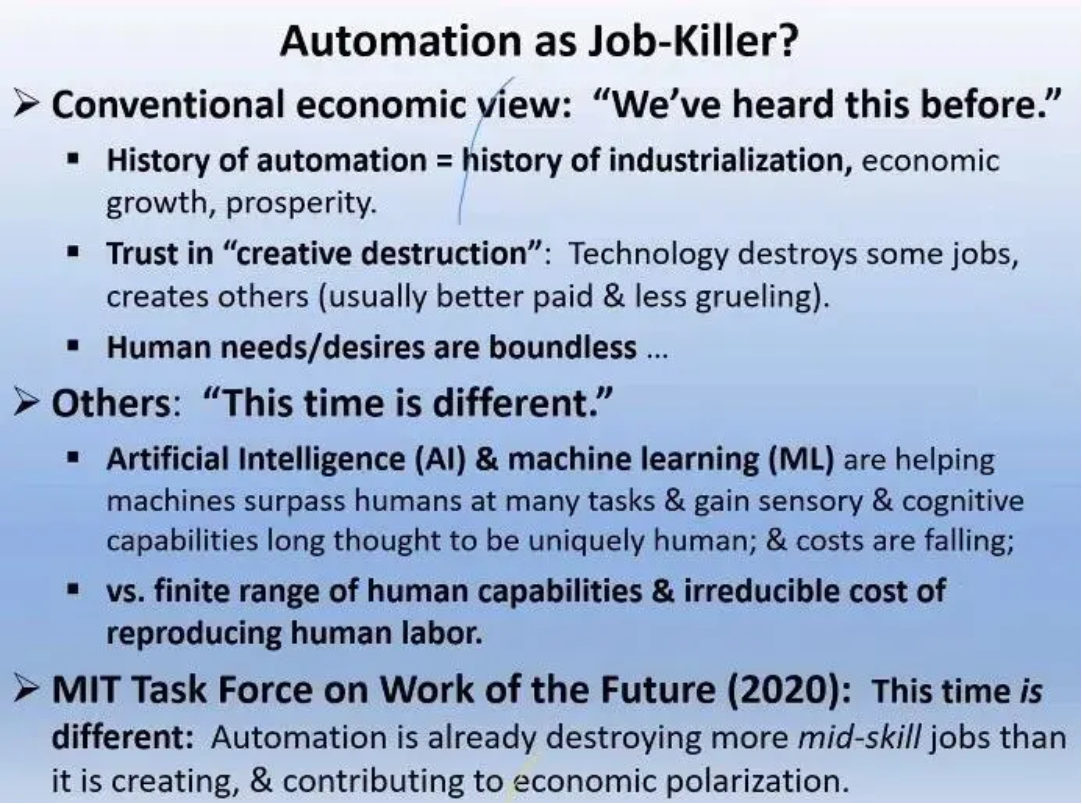
Some researchers have tried to quantify the likely job losses. Research by the McKinsey Global Institute (MGI), which aims to break down how much work machines can do, came up with the figure below:


In addition, Professor Cynthia Estlund mentioned two issues that need to be noted: the possibility of automation does not mean the reality of automation, and automation does not mean net unemployment.
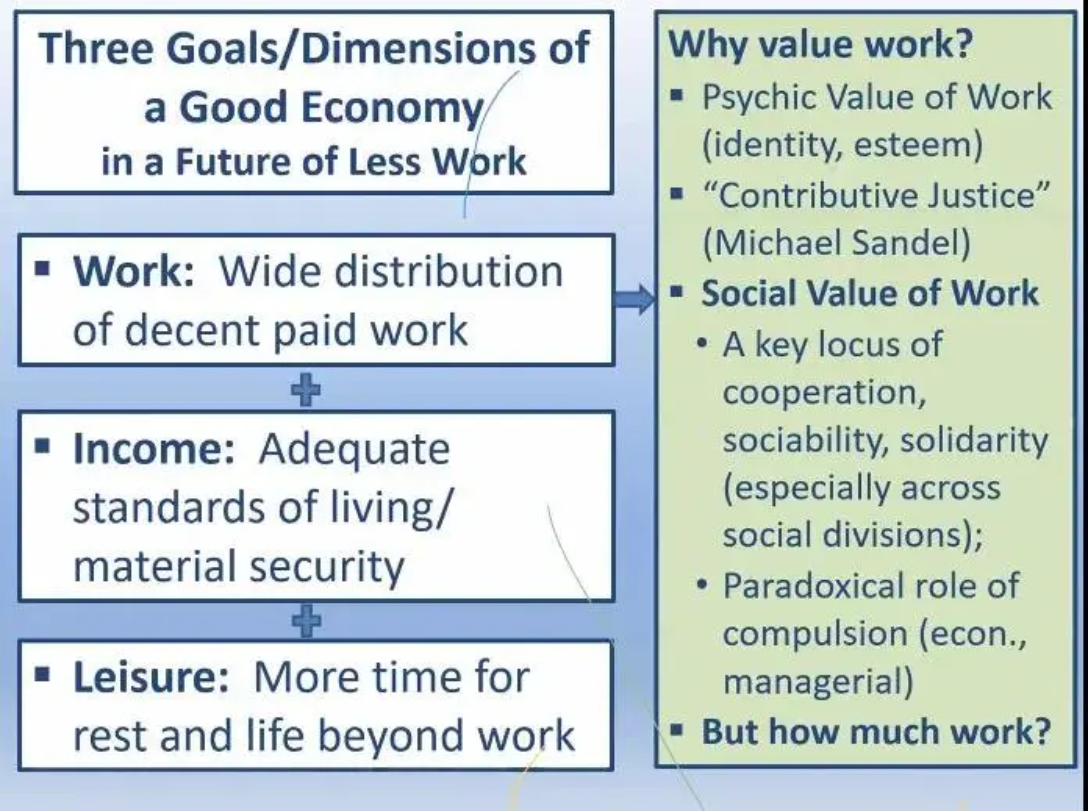
Finally, Professor Cynthia Estlund talked about Work/Income/Leisure goals in the future and a three-dimensional strategy to deal with employment caused by automation:
We should think about what we want to achieve when we have the ability to do more of what needs to be done with fewer people.
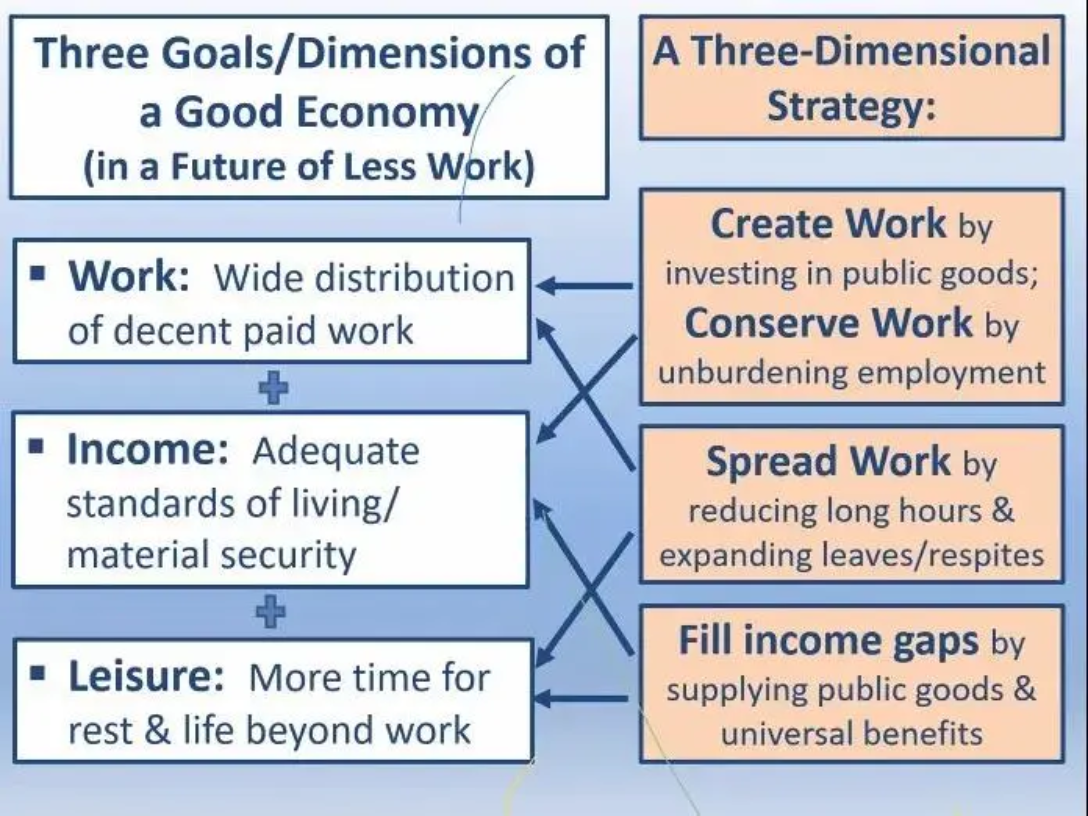
First, we need a widespread distribution of decent-paying jobs, even as the work itself shrinks away. Second, we need ways to ensure that people have a decent material standard of living. Throughout the history of the world, this has been done through work, especially paid work, and we need to ensure that there is still access to the money, materials, goods and services that people need to ensure their standard of living. Finally, we want to have more time for the rest of our lives, which I call leisure. That means more time for rest, sleep, and more time in your life to do things other than work. It's a bonus, a bonus that we can get in an automated economy.
Zhang Jiyu, an associate professor at Renmin University of China Law School, first introduced the topic with the example of "virtual models". First of all, while the platform economy has brought many job opportunities, people may also face difficulties in running businesses online, such as high filming and publicity costs. The development of artificial intelligence can help solve these problems, she said. Second, many others have expressed concerns that the technology could compromise the work of a large number of models and photographers, and whether the platform can provide a solution. In addition, she said that unemployment is a very important social issue caused by artificial intelligence.
Professor Shen Jianfeng, from the Law School of Central University of Finance and Economics, said that in the context of automation, both labor and labor law seem to be in crisis in the future. When human labor is gradually replaced, labor law will disappear. But by eliminating labor to solve the social problems caused by labor itself is worth looking forward to. Professor Shen Jianfeng pointed out that the most important thing is how we can solve the new social problems brought about by automation.
Associate Professor Li Lingyun, from the School of Economics and Law of East China University of Political Science and Law, said the development of artificial intelligence is a basic national policy in China. Many manufacturers have replaced workers with artificial intelligence in recent years, which has become an ideal way to solve the rising labor costs and labor shortages. She also proposed two steps to protect the basic interests of platform practitioners. First, improve the current work-related injury insurance system so that all employees can participate in the insurance, regardless of whether they are employees. The second is to encourage collective negotiation between platforms and trade unions, and to determine reasonable working conditions and hours through social autonomy rather than legislative coercion.
Wang Tianyu, an associate researcher of the Institute of Law at the Chinese Academy of Social Sciences, said automation will bring about changes in the work field, such as the restructuring of job structures and the restructuring of the welfare system. He proposed that we are in a new era, everything is changing and restructuring, as a scholar in the field of labor law also need to rebuild thinking.
Ban Xiaohui, an at Wuhan University's law school, was the first to talk about creative destruction, as well as the inequality of technological progress. He also talked about China's efforts to cope with new technological challenges. In view of the new technology, we should rethink the normative boundary of labor law, promote the decoupling of social insurance rights and labor relations, establish a multi-level social security system, speed up the reform of vocational training, improve the lifelong education system, etc.
Ding Wenwen, a lecturer at the School of Civil, Business and Economics at China University of Political Science and Law, thought no need to worry about job losses due to automation, at least for now or in the near future. While it may take years for automation to eventually replace most jobs, she said, there are still plenty of real-world concerns. Including what Associate Professor Zhang Jiyu mentioned before, what is the basis for the definition of the three economic goods: work, income and leisure? Why not education, equality, freedom or other economic goods?
According to Postdoctoral Fellow Chen Jingyuan, from Tsinghua University's law school, the subject of today's discussion is no longer a hypothetical future, but a real and looming danger. To some extent, the gig economy is booming as a result of China's deindustrialisation. At the same time, with the development of self-driving cars and AI cargo sorting machines, some workers are gradually being replaced in certain regions or companies. He proposed, as Professor Estlund says, that it is time to create a long-term policy to deal with the challenges of a more automated world. In addition, Postdoctoral Fellow Chen Jingyuan also raised some questions about the implementation of the 3D strategy.
Yu Hui, a lecturer at the School of Civil of Business and Economics at China University of Political Science and Law, said automation could be one of the solutions to the labor shortage as China enters an aging society. Although the production lines were used in factories, many manufacturing workers lost their jobs. The problem we face is not automation itself, but how we deal with it and regulate it.
Postdoctoral Fellow Pan Yijia, from Renmin University of China's Law School, agreed with Cynthia that work is important. Work can provide not only income, but also some social value. At the same time, he thought there may be other alternatives that provide social value.
Associate Professor Tang Hongmiao, from the law school of Liaoning University, believed that with the advent of automation, compared with the issue of institutional change, the social security law will have to face a more urgent problem of establishing a new system, especially how to bring people who need more protection into the system first. These are topics for further study.
The article was reprinted from "China Labor and Social Security Law Network" WeChat official account with some corrections

